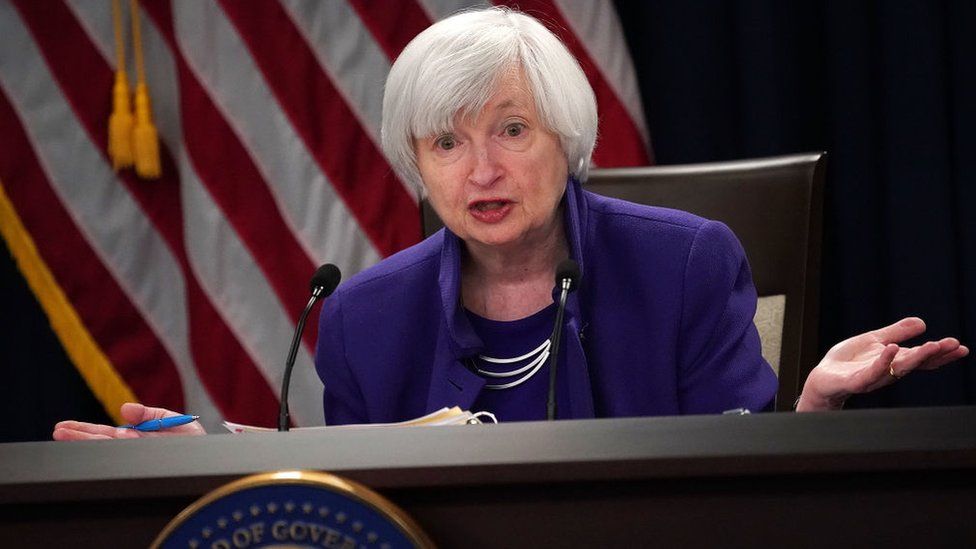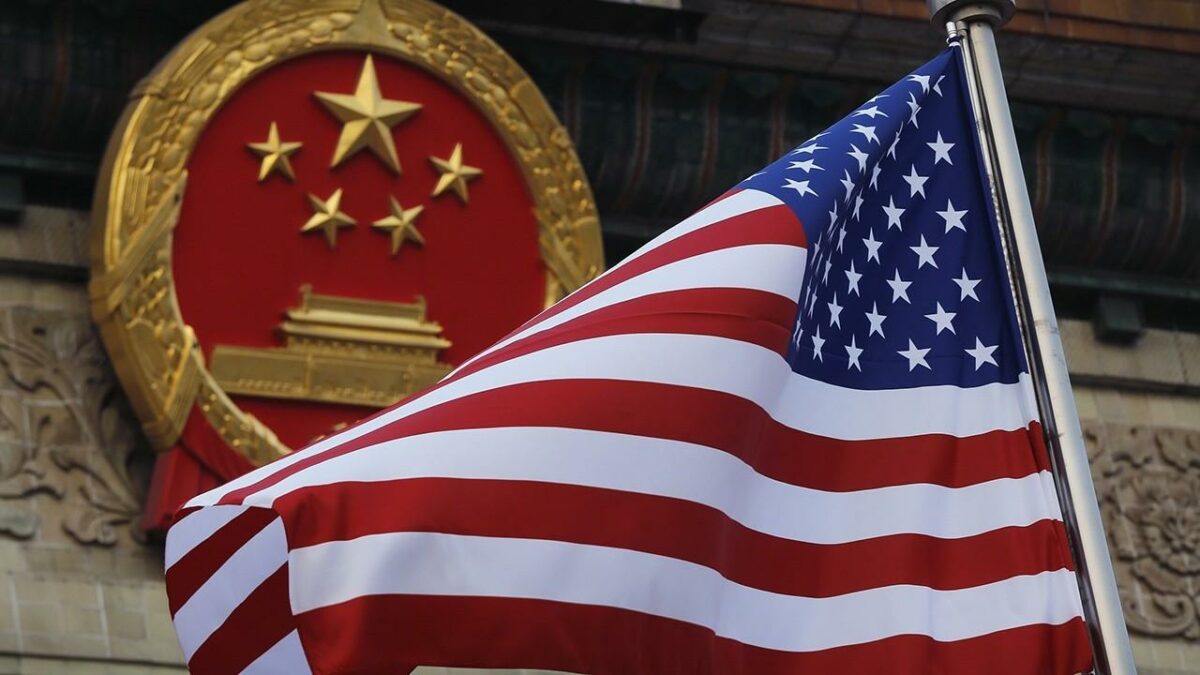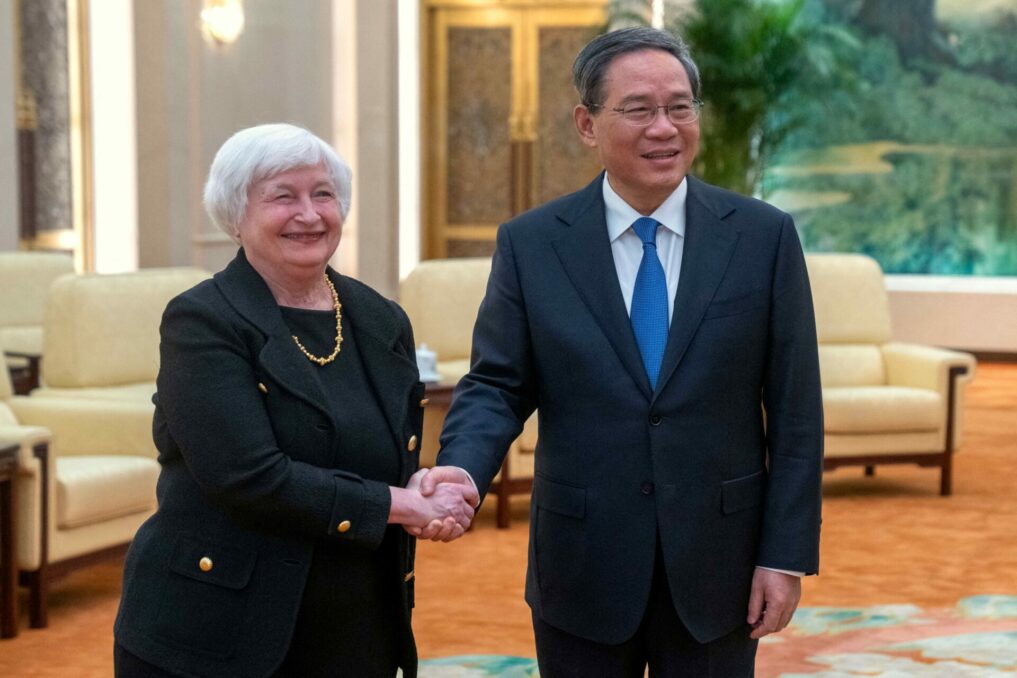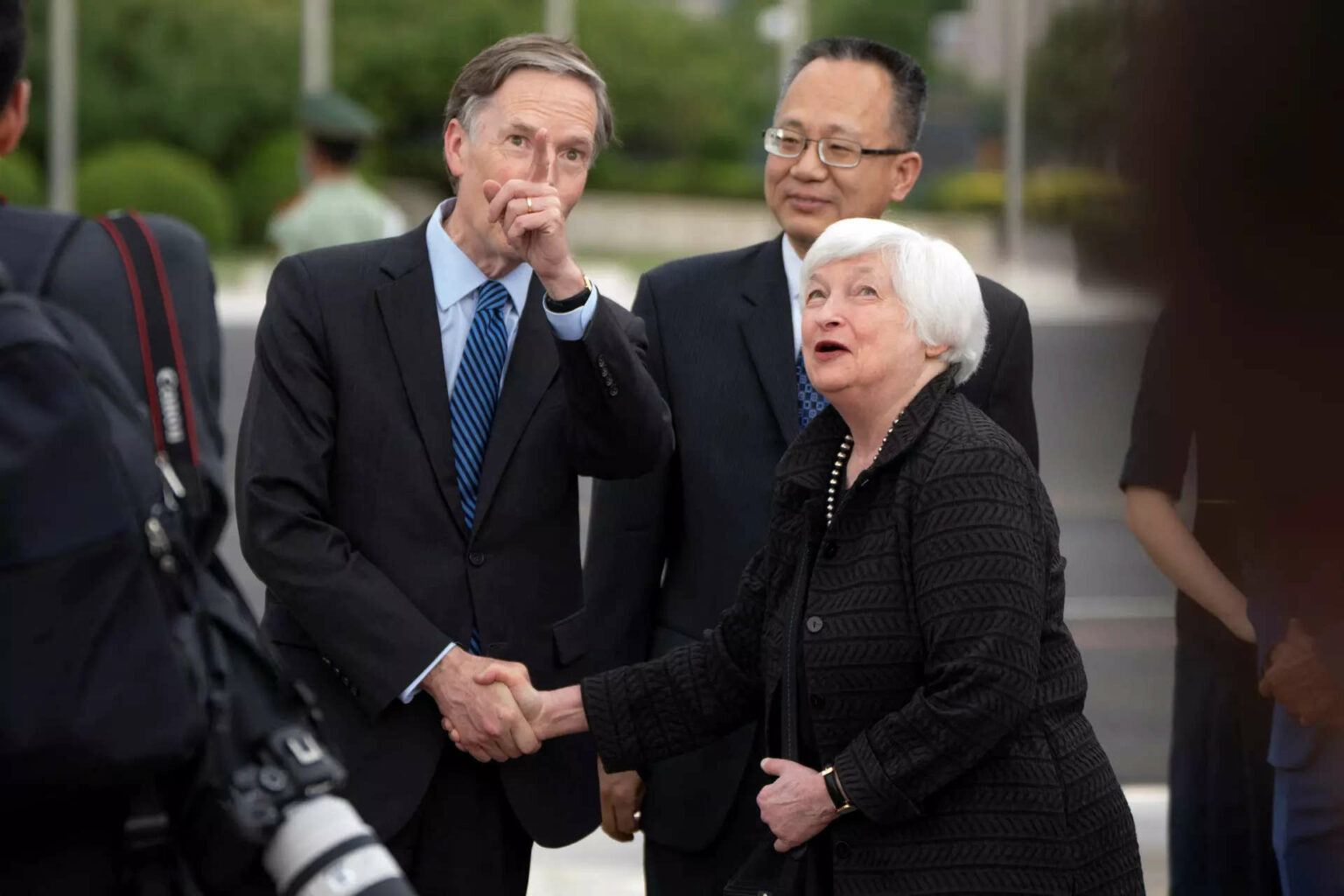Table of Contents
In the realm of economic relations between the United States and China, American executives have personally experienced what they describe as challenging and even hostile conditions while doing business in China.
American Executives’ Challenges in Chinese Business Landscape
During her visit to Beijing, Treasury Secretary Janet L. Yellen highlighted these concerns and strongly objected to punitive measures imposed by the Chinese government against foreign firms, reflecting the escalating tensions between the two nations. Speaking alongside executives from influential American companies, Yellen criticized China’s harsh treatment of companies with foreign ties and its recent imposition of export controls on critical minerals.
She argued that such actions justify the Biden administration’s efforts to reduce dependence on China for American manufacturers. Yellen’s comments, made to a group of American business executives operating in China, underscored the difficulties faced by the world’s two largest economies as they strive to reconcile their profound differences.

This forceful defense of American industry took place on Yellen’s first day of meetings in Beijing, as part of a high-stakes trip aimed at easing tensions between the United States and China. Yellen’s visit to China was significant as it marked the first time in four years that a Treasury Secretary had visited the country.
During her visit, Yellen expressed concerns on behalf of the U.S. business community regarding certain practices employed by China. At an event organized by the American Chamber of Commerce in China, she specifically highlighted China’s utilization of nonmarket tools, such as increased subsidies for state-owned enterprises and domestic firms. Yellen also mentioned the existence of barriers that restrict market access for foreign firms. Moreover, she expressed deep concern over the punitive measures imposed on U.S. companies in recent months.
Notable attendees at the event included representatives from Boeing, Bank of America, and the agricultural giant Cargill. Incidents such as the detainment of five Chinese nationals working for the Mintz Group, an American consulting company, and the questioning of employees at the Shanghai office of Bain & Company, a U.S. management consulting firm, further intensified scrutiny of American businesses operating in China. These incidents followed restrictions imposed by the Biden administration on China’s access to critical semiconductor-making technology and tools.
The Biden administration is considering additional restrictions on U.S. technology trade with China, including potential limitations on advanced chips and American products. Furthermore, plans are underway to restrict Chinese companies’ access to U.S. cloud computing services, with the aim of curbing China’s use of advanced chips for artificial intelligence. In response, Beijing retaliated against the U.S. limits on semiconductors by announcing its own restrictions on the export of certain critical minerals used in chip production. Yellen expressed her concern over China’s export controls and suggested that further responses from the United States might be forthcoming.
The Hope for Improved Economic Relations
A representative from China’s Ministry of Finance expressed hope that the meetings with Yellen would improve economic relations and suggested that the United States should take steps toward that goal. The official emphasized that “decoupling” and supply chain disruption are detrimental to both countries.
However, long-time observers of the U.S.-China relationship remained skeptical about the prospects of a swift breakthrough. Shi Yinhong, a political scientist at Renmin University in Beijing, stated that Yellen’s visit could not be expected to substantially mitigate the numerous and broad differences between the two countries. Chinese officials, he argued, were unlikely to be surprised by Yellen’s support for American businesses in China.”It’s unlikely that the Chinese side would have significantly elevated expectations,” he commented.
The tightening of China’s national security laws, including a stringent counterespionage law that recently came into effect, has alarmed U.S. businesses. The U.S. State Department even issued a warning this week advising Americans to reconsider traveling to China due to the possibility of wrongful detention.

Michael Hart, the president of the Chamber, highlighted the commitment of American companies to actively contribute to the positive development of the economic relationship between the United States and China. Recognizing the significance of this bilateral relationship, American businesses are dedicated to playing a constructive role. Their aim is to foster mutual understanding, promote fair trade practices, and seek opportunities for collaboration and shared growth. Through their engagement, American companies are determined to build bridges and contribute to the long-term success and stability of the economic ties between the two nations. Despite the political challenges, they are committed to conducting business that aligns with their values, including employment, manufacturing, production, buying, selling, and fulfilling tax obligations.
Yellen aimed to address these concerns in upcoming meetings with Chinese officials in the following two days. Simultaneously, Chinese companies have also felt a sense of mistrust in the United States, which the Chinese officials meeting Yellen were likely to address.
Implications of Punitive Actions on US Firms in China
Wang Yong, the director of the Center for American Studies at Peking University, remarked that relationships that were once mutually beneficial have now become politicized, securitized, and even demonized, with potential implications for national security. Nevertheless, he believes that despite the so-called strategic competition, China and the United States still have many common interests.
On Friday, Yellen met with Liu He, China’s former vice premier, and Yi Gang, the outgoing governor of the People’s Bank of China. Yellen engaged in an informal discussion with her former counterparts for over an hour, focusing on the economic outlook.
Ahead of her meeting with Premier Li Keqiang, China’s second-highest-ranking official, Yellen emphasized the importance of “healthy competition” between the two nations. She stressed that measures taken by the United States based on national security should not be misinterpreted as attacks on China. While acknowledging potential disagreements, Yellen highlighted the need to avoid misunderstandings that could further strain the bilateral economic and financial relationship.

Seated next to Yellen, Premier Li acknowledged the high expectations associated with their meeting. He offered a glimmer of optimism, referring to Yellen’s arrival in Beijing, during which she had been photographed pointing to a rainbow in the sky. Li suggested that this sighting might symbolize the possibility of repairing the relationship between China and the United States.
“I’m genuinely looking forward to this opportunity to exchange views with you,” stated Li through an interpreter.
Read more here: Yellen, in Beijing, Criticizes China’s Treatment of U.S. Companies
Coco Lee: Enchantress of pioneering melodies – Remarkable.
Cage Fight: Elon Musk vs. Mark Zuckerberg













